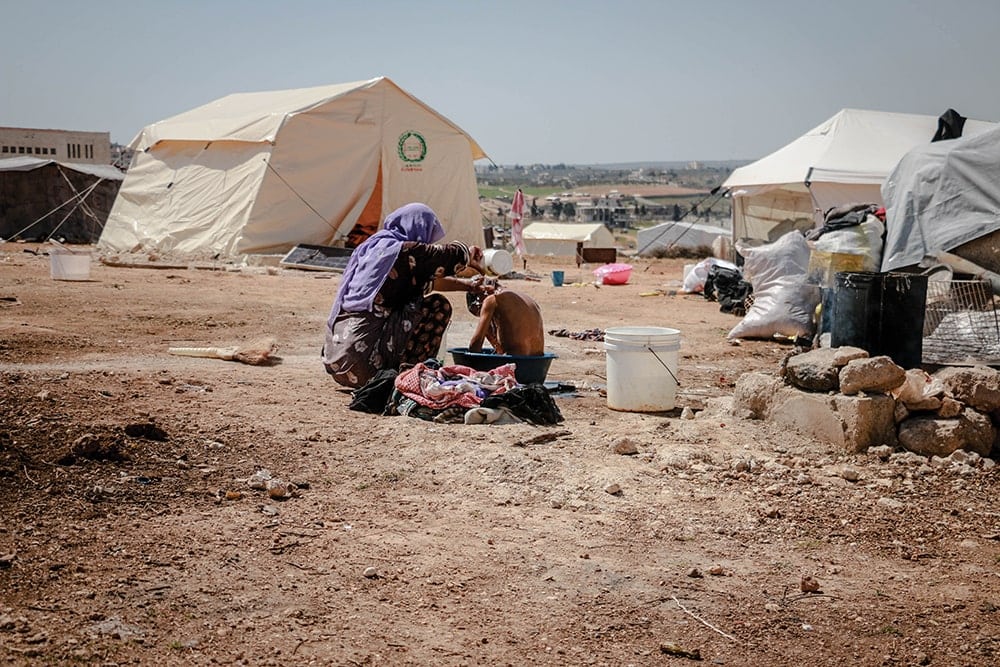Living in the United States of America, we must never forget that this is a country built by immigrants — poor and oppressed groups that bravely forged uncharted territories searching for justice, freedom, and opportunity to build a new world. Although in practice, one could argue that many next-generation Americans forget their ancestors’ legacy and promote isolationism. For this reason, I believe it is important that we remind ourselves of the journey of an immigrant and its undeniable psychological impact on their life for years to come.
Currently, the U.S. hosts approximately 46 million immigrants, which amounts to almost 19 percent of international immigration in the world. Recently, there has been a spike in unattended minor migrants in this country that are displaced and seeking asylum. With the current war in Ukraine, in less than a month, the world amassed an additional 3.5 million refugees, many of whom are minors. As we enter the modern era of sociopolitical struggles related to immigrant populations in our microcosms, it is helpful to reflect with fresh eyes on the various challenges that these populations face and how to retain awareness and sensitivity to psychological trauma, both acute and long lasting, on the developing minds of young asylum seekers.
Historically, when analyzing issues about immigration, the focus has been on the adults; the children are seen as mere appendages to their parents. Children are perceived to have an advantage due to their psychological malleability and lack of established socialization in their countries of origin. However, this perspective fails to address the developmental trauma associated with early cultural displacement in the formation of self and identity. Immigration consists of three distinct stages. Assessing each stage can determine the success or challenge of the integration process and mental health outcomes.
The first stage, known as pre-emigration, deals with why people left or were forced to leave their homeland. Unfortunately, poverty, political or social oppression, war, and persecution are some of the common reasons. We must remember that minors in these situations are not only processing their own exposure to trauma but also their families’. Children in these families are subject to transgenerational trauma, as they co-exist with family members that may have a whole host of their own post-traumatic stress symptoms. When an adult caregiver’s mental health is compromised due to grief, finances, or other factors, their ability to help navigate their children’s experiences is also compromised. These types of blows to the developing nervous system can become irreparable, later manifesting as behavioral and emotional challenges, anger, isolation, poor self-esteem, addiction, etc.
The second stage is the process of transition. In some cases, this can be a painless process if border crossings are well organized, funded, and documented. However, in many cases, these transitions can be chaotic, stressful, and entail grueling conditions, lack of food, water, dangerous transportation conditions, rape, assault, as well as displacement from family members.
The third stage is the post-immigration, which can entail challenges with acculturation, trauma-based difficulties, discrimination, xenophobia, and for undocumented families, chronic stress around work placement, work experience, and constant persecutory anxiety of deportation.
Children entering schools with poor language skills often suffer bullying, isolation, and being ostracized. This plays a very damaging role in developing self-esteem and self-worth. The feeling of being an outsider can become a chronic experience of the self and can include anxiety around alien cultural norms, being laughed at, being frequently told they are different than the rest, as well as academic struggles. In addition, they might experience grief due to the loss of friends, family members, and in some cases, parents. Children who have left war-torn homes for a better life often experience a survivor’s guilt and can become self-destructive.
Minors in immigrant families often are the voice and the bridge for their family in their new home. Being an immigrant child, I remember being responsible for doing many things for my mother due to her language barrier or cultural anxiety. We carry the burden of being the translator, the explainer, the messenger. This creates a family system that breeds deeper emotional enmeshment and codependency; it’s the “us against the world” feeling. This influences the growing child’s ability to individuate from the family of origin. Immigrant children are often stuck between two worlds, not able to inhabit either completely.
With thousands of children detained in refugee camps, as well as current conflicts that will undoubtedly create a new surge of immigration around the world, our local communities must be reminded of the immigrant journey of their ancestors. San Pedro, specifically being a community with a unique patchwork of such culture, will undoubtedly consider these tremendous pressures affecting our new immigrant neighbors. Local communities must work to facilitate healing where opportunity presents, despite economic adjustments that our national budgets will undergo. spt







Comments